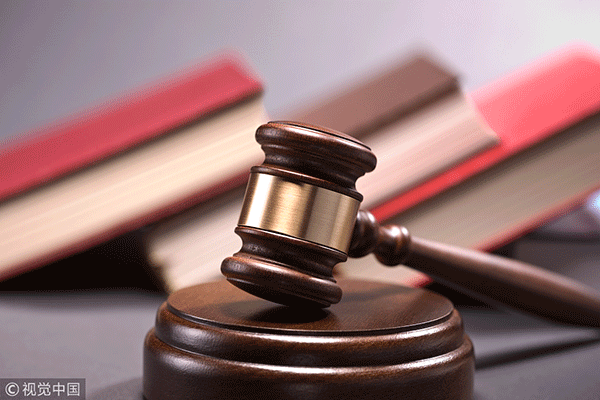Nation's courts backing better legal services

Top judge cites need to improve business climate, support high-quality growth
Fostering a favorable business environment by improving the rule of law and offering better legal services will be a priority for Chinese courts this year to promote the country's high-quality development, the top judge said.
"Courts across the country should fully play their role and make efforts to help improve the business environment … and offer strong legal support for a healthy, sustainable economy and a stable society," Zhou Qiang, president of the Supreme People's Court, said while attending a panel discussion of the ongoing annual session of the National People's Congress.
In late February, President Xi Jinping also called for efforts to create a favorable legal environment for China's reform, development and stability at a meeting in Beijing.
The rule of law provides the most favorable environment for business, meeting participants stressed, calling for equal protection for the property rights and legitimate interests of all market entities. They also called for development of more services for foreign-related legal affairs to maintain and support the country's high-level opening-up.
To optimize the business environment for litigants from home and abroad, the top court has taken various measures in the past year, such as enhancing protection of property rights, setting up special courts and better handling of financial trials, according to the top court.
Several major wrongful convictions involving private entrepreneurs were overturned. In one such case, Zhang Wenzhong, former chairman of Wumei Holdings Group, parent of major retail chain Wumart Stores, was cleared of bribery and fraud on May 31 after his conviction was overturned.
The reversal by the top court in the case — due to insufficient evidence and wrongful applications of the law — was considered a landmark in protecting the legitimate rights and interests of entrepreneurs.
This year, the top court will continue improving judicial policies and strictly distinguish financial disputes from economic crimes, said Jiang Qibo, director of the SPC's Research Office.
New judicial interpretations on property rights protection are anticipated and information on typical cases will be released to better guide lower-level courts in handling such cases, he told China Daily in an interview.
The top court will also comprehensively review existing judicial interpretations and documents in a timely fashion to change or abolish content that fails to offer equal protection for private economic entities, he said.
"This is a major step by the top court in fostering a fair, transparent and predictable business environment to assure entrepreneurs they can start a business, invest and operate without concern," Jiang said.
The protection of intellectual property rights also is high on the top court's agenda this year.
In January, a national-level IP court for hearing civil and administrative patent-related appeals was set up in Beijing.
Before that, three intermediate-level IP courts opened in Beijing, Shanghai and Guangdong province in 2014. As the end of 2018, 90,578 IP cases had been filed with these courts, of which 74,007 were concluded, according to the top court.
"The reform of IP trials has made such hearings more professional and has streamlined the procedures of IP litigation," said Hu Shihao, director of the SPC's Judicial Reform Office.
With the advance of the Belt and Road Initiative, Chinese courts are also witnessing more foreign-related commercial disputes, so the SPC is also striving to offer better legal services to foreign litigants.
Two international commercial courts were opened in June in Guangdong and Shaanxi provinces. In August, the top court set up an international commercial expert committee and invited 32 domestic and foreign experts to be committee members.
These changes were in answer to the need for more professional judicial services because of the complexity of the legal systems of various countries involved in the BRI and the different nature of international commercial disputes, according to the top court.
In addition, China's first court specializing in handling financial disputes was established in Shanghai on Aug 20. As of the end of January, it had handled 2,222 cases involving 32.7 billion yuan ($4.86 billion), court figures show.
Lin Wenxue, chief judge of the SPC's No 2 Civil Division, said that by improving trials of financial lawsuits, courts can help maintain a stable financial market and prevent financial risks.









